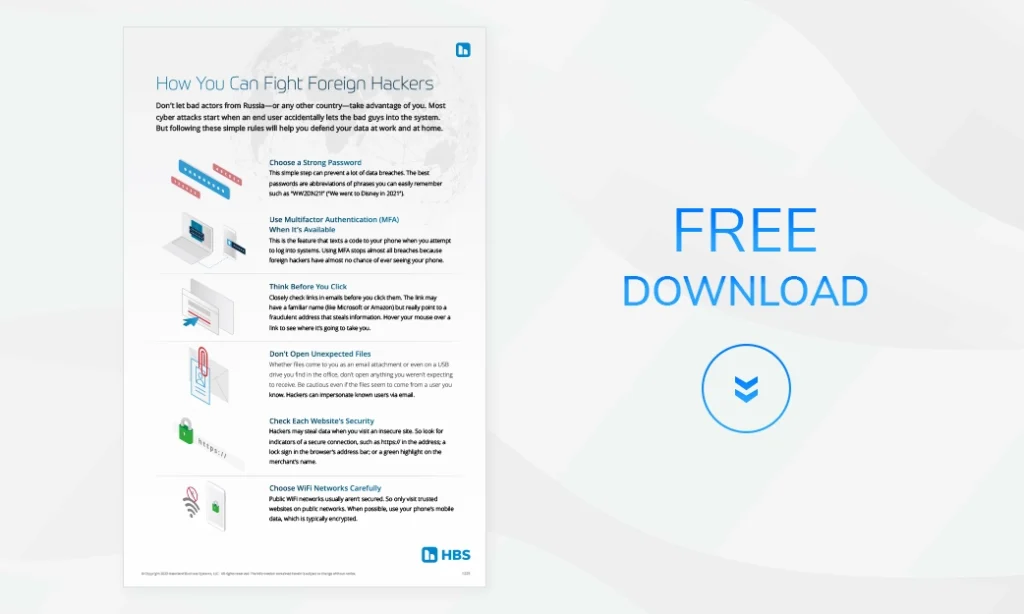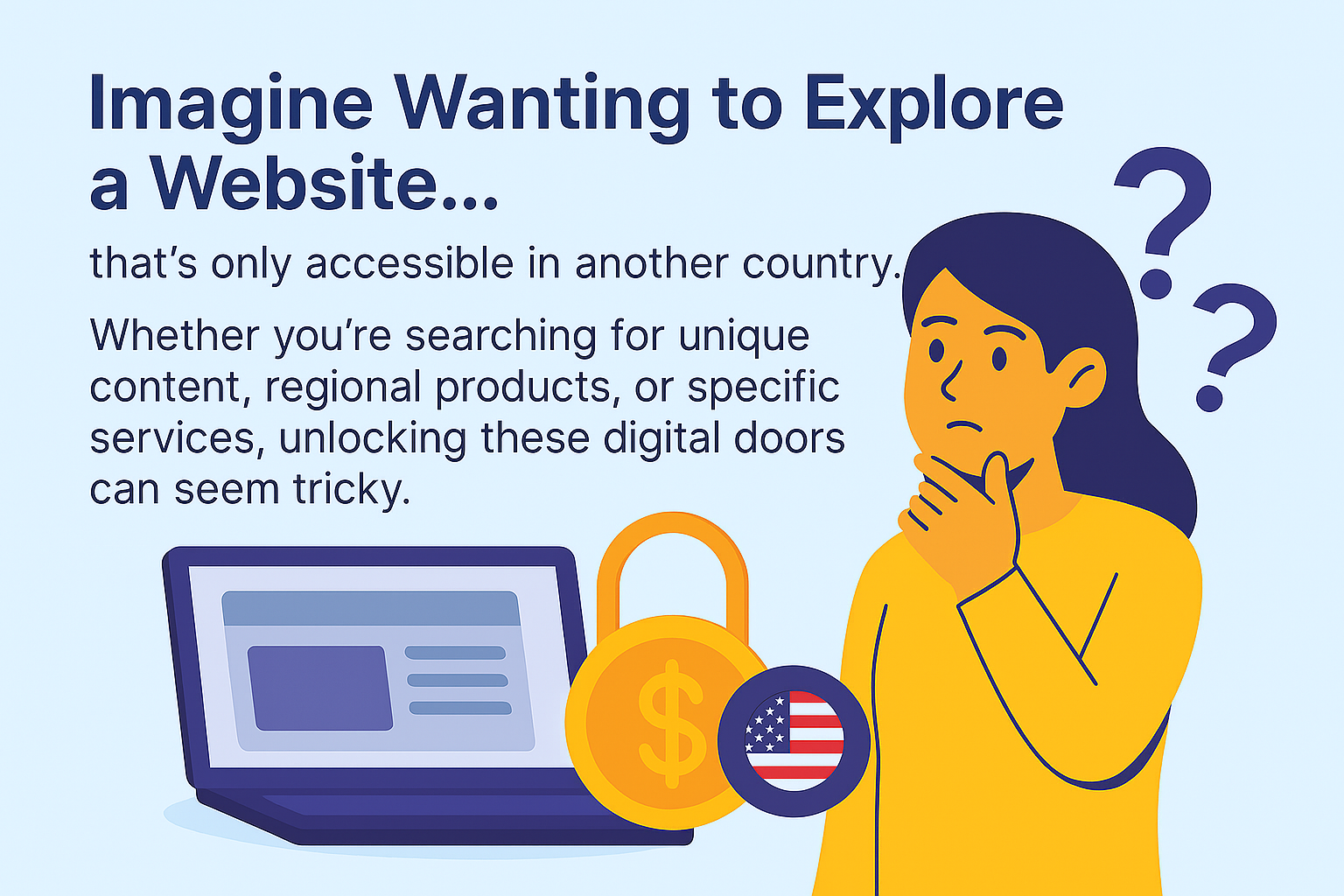How Do I Open a Website in Another Country? Effortless Guide wanting to explore a website that's only accessible in another country. Whether you're searching for unique content, regional products, or specific services, unlocking these digital doors can seem tricky.
But fear not, the solution is simpler than you might think. With a few clever tricks and the right tools, you can navigate through the virtual world with ease, no matter where you are.
In this guide, you'll uncover straightforward methods to access websites from different countries, ensuring you never miss out on anything the internet has to offer. Plus, if you're looking to create your very own international website, services like Hostinger can help you build a fast, secure, and reliable online presence.
With features like free domain registration, unlimited SSL certificates, and multilingual support, Hostinger ensures your site is ready to reach audiences worldwide.
Stick around, and you'll soon master the art of accessing global content without any hassle.
Introduction To Accessing International Websites
Exploring websites from different countries can unlock a world of information and opportunities. Whether you're researching global trends, connecting with international businesses, or accessing geo-specific content, knowing how to open a website in another country is crucial. This guide will introduce you to the basics of accessing international websites and the steps you need to follow.
Why You Might Want To Open Websites From Other Countries
There are several reasons why you might need to access websites from other countries:
- Research: Access foreign news and academic sources for broader insights.
- Business: Understand competitors and market trends in different regions.
- Entertainment: Stream content available only in specific countries.
- Cultural Exchange: Learn about other cultures by visiting local sites.
Common Challenges In Accessing Foreign Websites
Accessing international websites can present several challenges:
- Geo-Restrictions: Some sites block access based on location.
- Language Barriers: Websites may be in foreign languages.
- Slow Loading Times: Distance can affect site speed.
- Security Risks: Increased risk of encountering fraudulent sites.
Understanding these challenges helps in preparing effective solutions. Using a reliable hosting service like Hostinger can enhance your experience. With features like managed hosting, free domain registration, and enhanced security, Hostinger ensures a smooth browsing experience regardless of location.
Hostinger's multilingual support and AI tools further aid in overcoming language barriers and optimizing your website's performance. With a proven track record and a risk-free 30-day money-back guarantee, Hostinger is a trusted choice for accessing and managing international websites.
Understanding Geo-restrictions
Geo-restrictions limit access to websites based on geographical location. These restrictions are imposed by content providers or governments to control internet access. Accessing websites in another country requires understanding these limitations and finding ways to bypass them.
What Are Geo-restrictions?
Geo-restrictions refer to the practice of blocking or limiting internet content based on a user's location. Websites implement this to comply with legal requirements or licensing agreements. For instance, streaming services often restrict access to their content outside certain regions.
Several factors contribute to geo-restrictions:
- Licensing Agreements: Content providers have agreements that restrict content to specific regions.
- Legal Regulations: Governments impose laws that limit access to certain websites.
- Marketing Strategies: Businesses may offer different content or services based on location.
How Geo-restrictions Affect Your Internet Browsing
Geo-restrictions affect internet browsing by limiting access to certain websites. Users may encounter blocked sites or altered content. This can hinder the ability to access global information or services.
Here's how geo-restrictions impact browsing:
| Impact | Description |
|---|---|
| Blocked Content | Websites may be inaccessible due to geographical limitations. |
| Altered Services | Content or services may differ depending on your location. |
| Limited Access | Users might not access specific information or online tools. |
Understanding and navigating geo-restrictions is crucial for accessing international websites. Exploring reliable hosting services, like Hostinger, can help mitigate these challenges by ensuring fast and secure website access globally.
Methods To Access Websites In Other Countries
Accessing websites in different countries can be tricky due to geo-restrictions. Yet, there are effective methods to bypass these limitations. Using the right tools, anyone can view international content with ease. Below are some popular methods to access websites from other countries.
Using Virtual Private Networks (vpns)
A Virtual Private Network (VPN) is a popular tool for accessing websites globally. It masks your IP address, making it appear as if you're browsing from a different location. VPNs offer numerous advantages:
- Privacy Protection: Keeps your online activities secure and private.
- Access to Restricted Content: Unlocks region-specific websites.
- Enhanced Security: Protects data from hackers and snoopers.
Many VPN providers offer easy-to-use apps for various devices. Popular VPNs include NordVPN, ExpressVPN, and Surfshark. Ensure you choose a VPN with high-speed servers and strong encryption.
Proxy Servers As An Alternative
Proxy Servers act as intermediaries between your device and the internet. They provide a different IP address, helping you access blocked sites. Proxy servers offer these benefits:
- Cost-Effective: Often free or available at low cost.
- Easy to Use: Requires minimal setup for basic use.
Though proxies are useful, they might lack the security of VPNs. They might also slow down internet speeds. It's crucial to use a trusted proxy service to avoid data breaches.
Smart Dns: A Less Common Solution
Smart DNS is a less common but effective way to access international websites. It doesn’t change your IP but reroutes DNS queries to bypass geo-blocks. Smart DNS offers:
- Faster Speeds: No encryption means quicker access.
- Easy Setup: Simple configuration on most devices.
Smart DNS is ideal for streaming content from platforms like Netflix. But it lacks the encryption and privacy features of VPNs. Popular Smart DNS services include Unlocator and Smart DNS Proxy.
These methods provide diverse options for accessing websites globally. Choose the one that best fits your needs and priorities.
Key Features Of Vpns For Accessing Foreign Websites
Virtual Private Networks (VPNs) are essential tools for accessing websites in other countries. They offer a secure and private connection, masking your real location. This allows users to bypass geo-restrictions and enjoy content from across the globe. Let's explore some key features of VPNs that make them indispensable for accessing foreign websites.
Encryption And Security
A VPN provides encryption that secures your internet connection. It protects your data from hackers and eavesdroppers. This ensures that your online activities remain private and secure. Most VPNs use AES-256 encryption, a standard trusted by security experts worldwide. This level of encryption is crucial when accessing websites in other countries, safeguarding your sensitive information.
Wide Range Of Server Locations
The ability to connect to servers worldwide is a major benefit. A VPN offers a wide range of server locations. This feature allows you to appear as if you are browsing from another country. It grants access to content that might be restricted in your location. Look for VPNs with a large network of servers. This ensures you have multiple options to connect to your desired country.
Ease Of Use And Setup
For many, ease of use is a top priority. A user-friendly VPN setup is crucial for non-tech-savvy individuals. Most VPNs offer intuitive apps for various devices. This makes it simple to start using them without technical skills. Setup typically involves downloading an app and clicking ‘connect'. It’s that simple. Ensure the VPN you choose offers a straightforward installation process.
In summary, VPNs are vital for accessing foreign websites securely. They offer advanced security through encryption, a wide range of server locations, and ease of use. These features make VPNs an effective solution for overcoming geo-restrictions and enjoying global content.
Pros And Cons Of Using Vpns And Proxies
Accessing websites in other countries often involves using VPNs or proxies. Both options have their merits and drawbacks. Understanding these can help in making informed choices. This section explores the advantages and limitations of each.
Advantages Of Vpns
VPNs offer numerous benefits for international web access. Here are some key advantages:
- Enhanced Security: VPNs encrypt your data, offering protection from hackers.
- Privacy Protection: They hide your IP address, keeping your browsing activities private.
- Global Access: VPNs allow access to geo-restricted content by changing your virtual location.
- Stable Connection: Most VPNs provide reliable and fast connections, ensuring smooth browsing.
For a secure and private browsing experience, VPNs are a solid choice.
Limitations And Risks Of Proxies
Proxies can help access foreign websites, but they come with drawbacks:
- Limited Security: Proxies do not encrypt data, leaving it vulnerable to interception.
- Unreliable Connections: Proxies often suffer from slow speeds and frequent disconnections.
- Potential Privacy Risks: Some proxies log user data, compromising privacy.
- Compatibility Issues: Certain websites may block proxy server access, limiting usability.
While proxies can be a quick fix, they pose significant security and privacy risks.
Comparing Vpns And Proxies For International Access
| Feature | VPN | Proxy |
|---|---|---|
| Security | High (Data encryption) | Low (No encryption) |
| Speed | Fast and stable | Varies, often slow |
| Privacy | Strong (No logging policies) | Weak (Possible data logging) |
| Ease of Use | User-friendly apps | Varies, less intuitive |
| Access to Content | Reliable access | May be blocked |
Choosing between a VPN and a proxy depends on your needs. For secure and private browsing, VPNs are generally superior. Proxies may serve short-term needs but at a risk to privacy and connection stability.

Credit: www.hbs.net
Pricing And Affordability Of Vpn Services
Accessing websites from another country often requires a VPN service. VPNs help bypass geographical restrictions. They also provide privacy and security. The cost of VPN services varies widely. It's vital to find a balance between price and features.
Popular Vpn Services And Their Pricing
Several VPN services dominate the market. Here’s a comparison of popular options and their pricing:
| VPN Service | Monthly Price | Annual Price | Main Features |
|---|---|---|---|
| NordVPN | US$ 11.95 | US$ 59.00 | Double VPN, CyberSec, No-log policy |
| ExpressVPN | US$ 12.95 | US$ 99.95 | 24/7 support, Strong encryption, Fast speeds |
| Surfshark | US$ 12.95 | US$ 59.76 | Unlimited devices, CleanWeb, NoBorders mode |
Balancing Cost With Features
Choosing the right VPN involves more than just price. Consider what features matter most to you. Here are some key factors:
- Security Features: Look for strong encryption and a no-log policy.
- Speed: Ensure the VPN offers fast connection speeds.
- Device Compatibility: Make sure it supports all your devices.
- Customer Support: Reliable support is crucial for troubleshooting.
Some users prioritize security features over cost. Others might need a VPN with fast speeds for streaming. Balance your needs with your budget for the best choice.
Specific Recommendations For Accessing Foreign Websites
Accessing websites in different countries can be challenging. Understanding the right tools and strategies is crucial. Whether you want to view blocked content or enhance your privacy, specific methods like VPNs, Proxies, and Smart DNS can help. These methods ensure a seamless browsing experience across borders.
Best Scenarios For Using Vpns
A Virtual Private Network (VPN) is ideal for securing your internet connection. VPNs encrypt your data, providing privacy and access to geo-restricted content. Here are some scenarios:
- Accessing streaming services like Netflix from abroad.
- Ensuring data privacy on public Wi-Fi networks.
- Bypassing government censorship in restricted regions.
VPNs offer a secure connection by masking your IP address. This makes it appear as if you're browsing from another location. It is a popular choice for users prioritizing security.
When To Use Proxies Or Smart Dns
Proxies and Smart DNS are alternatives for accessing foreign sites. They focus on redirecting your internet traffic through different servers. Consider these options when:
- Speed is more important than security.
- Need to access restricted websites without encryption.
- Want to bypass geo-blocks with minimal configuration.
Unlike VPNs, Proxies do not encrypt data, making them faster. Smart DNS changes your DNS settings to access region-locked content. They are user-friendly and ideal for streaming.
| Method | Best Use | Security Level |
|---|---|---|
| VPN | Privacy and access to restricted content | High |
| Proxy | Quick access and bypass restrictions | Low |
| Smart DNS | Streaming with speed and simplicity | Medium |
Selecting the right method depends on your needs. For security, choose VPN. For speed, opt for Proxies or Smart DNS. These tools enhance your internet experience by offering flexibility and accessibility.

Credit: community.cloudflare.com
Frequently Asked Questions
How Do I Change Country For A Website?
To change a website's country, update the domain or use a country-specific subdomain. Adjust geotargeting settings in Google Search Console. Modify content for local language and culture. Optimize for local SEO and ensure compliance with regional regulations.
How Do I Access A Us Website From Another Country?
Use a VPN service to access US websites from abroad. Select a server located in the United States. This masks your IP address and helps bypass geo-restrictions. Ensure the VPN is secure and reliable for safe browsing. Consider using browser extensions or smart DNS as alternative methods.
How Do I Make My Website International?
To make your website international, use multilingual plugins, optimize for local search engines, implement hreflang tags, and offer local currency options. Consider cultural differences in design and content.
How To Open A Website Not Available In Your Country?
Use a VPN to access websites restricted in your country. Choose a reliable VPN service, connect to a server where the website is available, and browse securely. Ensure VPN is legal in your region.
Conclusion
Exploring websites from other countries is now easier than ever. Use tools like VPNs or proxy servers for seamless access. Hostinger offers reliable hosting solutions, making international browsing smooth. Their services ensure speed, security, and user-friendly experiences. Want to build a site that reaches global audiences? Hostinger might be your perfect choice. Their plans include free domain registration and website migration. Check out Hostinger for more details. Enhance your online journey with trusted support and optimal performance. Access websites worldwide with ease and confidence.


